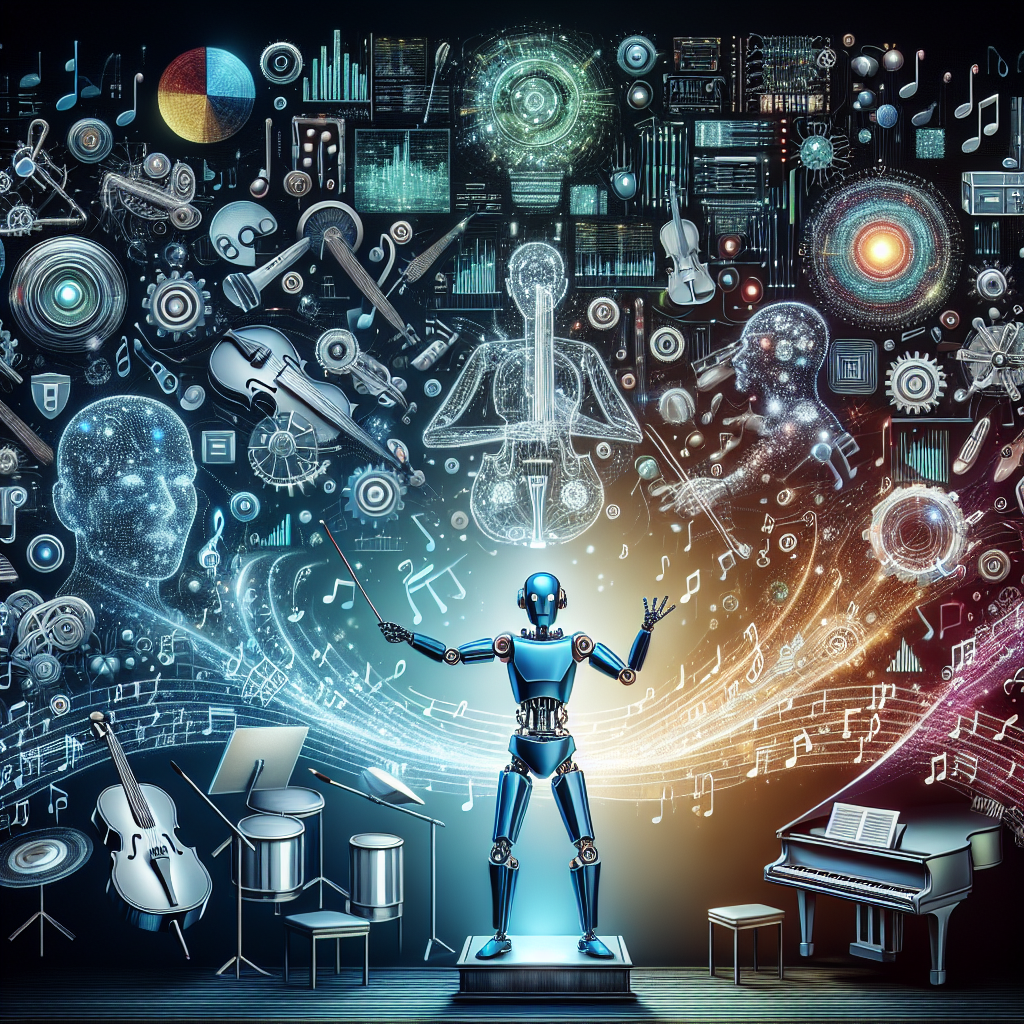Artificial Intelligence (AI) has revolutionized many industries, and the world of music is no exception. The use of AI in music has opened up new possibilities for artists, producers, and listeners alike. From creating music compositions to generating personalized playlists, AI technology is reshaping the way we interact with music. In this article, we will explore the evolution of AI in music and how it is changing the landscape of the music industry.
Evolution of AI in Music
AI has been used in music for decades, but recent advancements in technology have accelerated its integration into the music-making process. One of the earliest instances of AI in music was the development of computer-generated music in the 1950s and 1960s. Researchers and composers experimented with algorithms and computer programs to create music compositions that were generated by machines.
In the 1980s, Yamaha introduced the Disklavier, a piano that could be controlled by a computer. This allowed musicians to compose and play music on a traditional instrument with the help of AI technology. The Disklavier paved the way for the development of more sophisticated AI systems that could compose, arrange, and perform music.
Today, AI is being used in various aspects of music production and consumption. One of the most prominent applications of AI in music is in the creation of music compositions. AI algorithms can analyze existing music compositions and generate new pieces based on patterns and styles found in the data. This has led to the development of AI-generated music that is indistinguishable from human-made compositions.
AI is also being used in music recommendation systems to create personalized playlists for listeners. Streaming platforms like Spotify and Apple Music use AI algorithms to analyze listening habits and preferences to suggest new music to users. This has revolutionized the way people discover and consume music, making it easier to find new artists and genres that match their tastes.
Furthermore, AI technology is being used in live performances to enhance the musical experience. Artists are incorporating AI-powered tools and software into their performances to create interactive and immersive shows. AI can generate real-time visuals and sound effects that synchronize with the music, creating a dynamic and engaging performance for audiences.
Overall, the evolution of AI in music has transformed the way music is created, produced, and consumed. It has opened up new possibilities for artists and listeners, allowing for greater creativity and innovation in the music industry.
FAQs
Q: How does AI create music compositions?
A: AI algorithms analyze existing music compositions to identify patterns and styles. They then use this data to generate new music compositions that mimic the characteristics of the original pieces. AI can compose music in various genres and styles, making it a versatile tool for artists and composers.
Q: Can AI replace human musicians?
A: While AI technology has advanced significantly in creating music compositions, it is unlikely to replace human musicians entirely. AI can assist musicians in the creative process and enhance their performances, but it lacks the emotional depth and artistic expression that human musicians bring to their music.
Q: How does AI personalize music recommendations?
A: AI algorithms analyze listening habits, preferences, and behaviors to create personalized playlists for users. They take into account factors such as genre preferences, mood, tempo, and artist preferences to suggest music that matches the user’s tastes. This personalized approach to music recommendations has revolutionized the way people discover and consume music.
Q: How is AI used in live performances?
A: AI technology is used in live performances to enhance the musical experience for audiences. Artists incorporate AI-powered tools and software into their performances to create interactive visuals and sound effects that synchronize with the music. This creates a dynamic and immersive experience for concert-goers, adding a new dimension to live music performances.
Q: What are the benefits of using AI in music?
A: The use of AI in music offers several benefits for artists, producers, and listeners. AI can assist in the creative process by generating new music compositions, helping artists explore new styles and genres. AI also enhances the music discovery experience for listeners by providing personalized playlists and recommendations. Additionally, AI technology can improve live performances by creating interactive and immersive shows for audiences.

